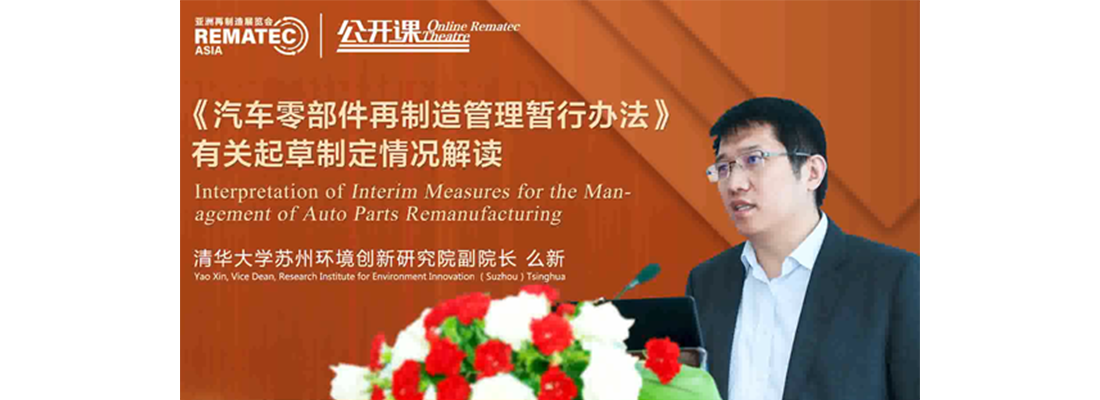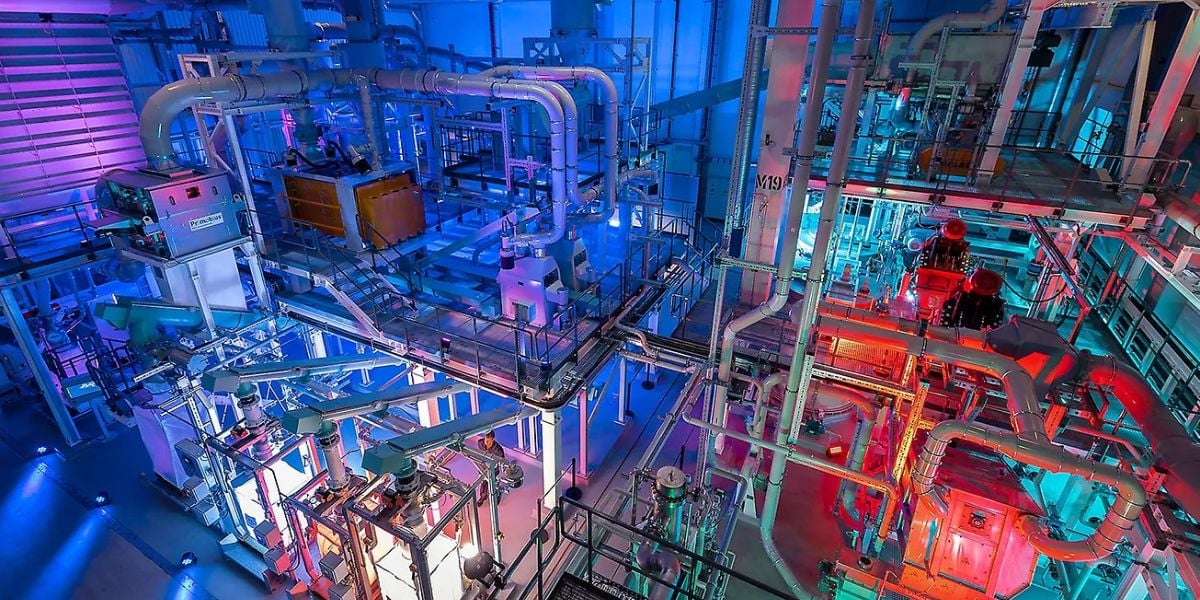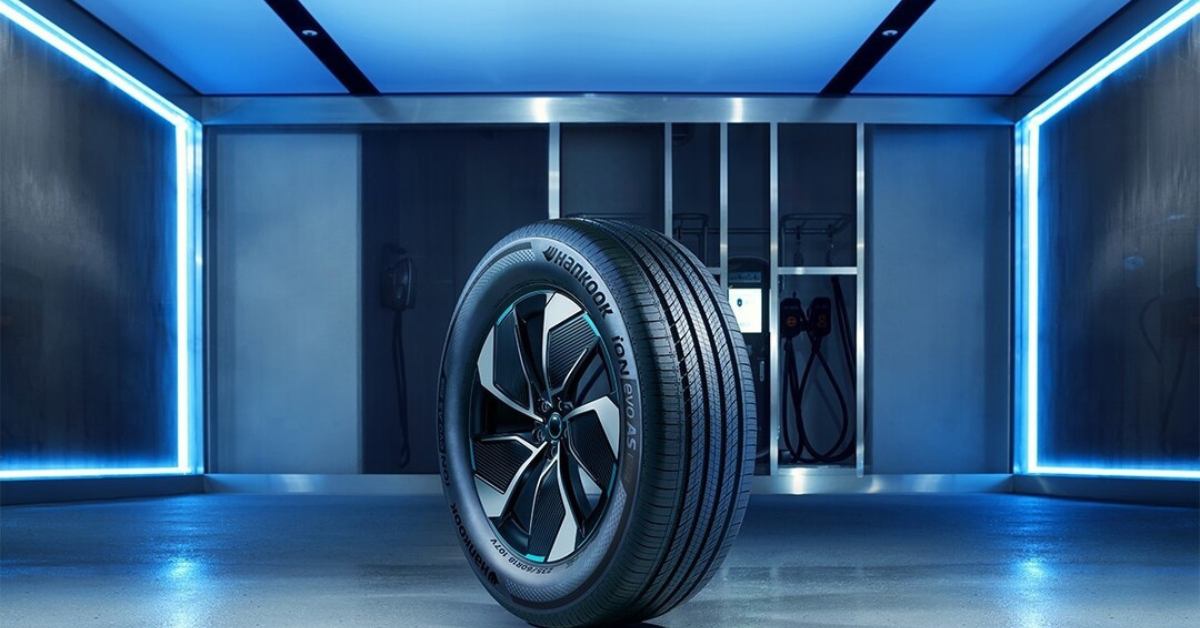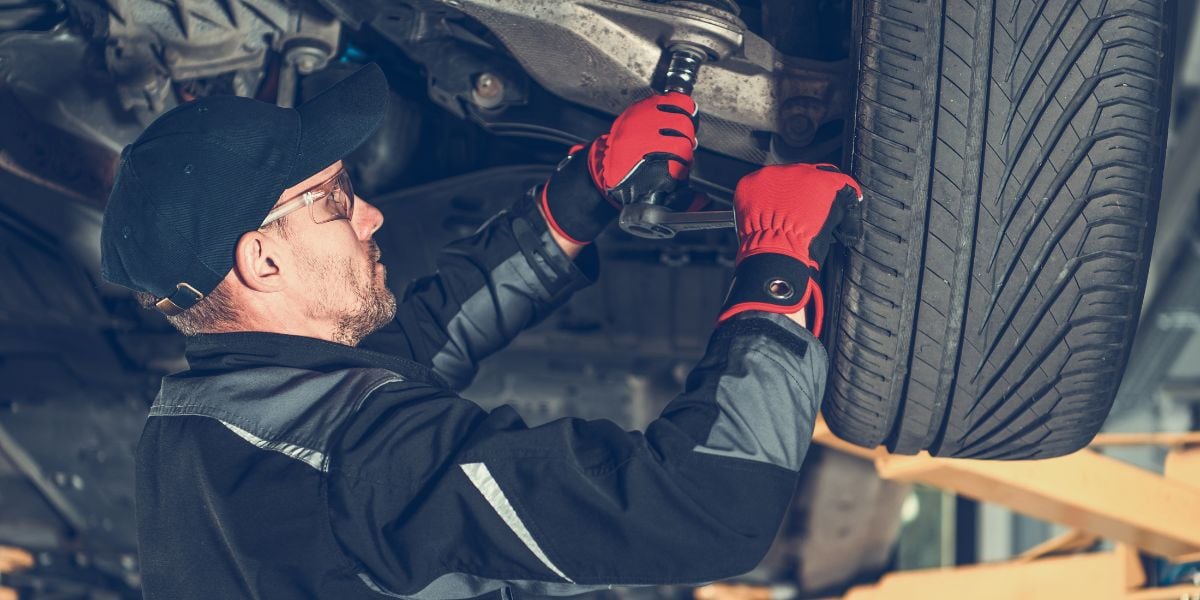China’s remanufacturing industry: what measures issued to evolve?
Yao Xin, Permanent Member of the 50 Forum on China Remanufacturing and Vice Dean of Research Institute for Environment Innovation (Suzhou), Tsinghua, China, spoke at the Rematec Theatre during Rematec Asia in October 2020. In his speech he speaks about the evolvement from China’s remanufacturing industry since 2005 and the current outlook on for example certification, regulation and core traceability management.
View the recordings from his 20 minutes speech with English subtitles or read the English transcript below the video.
Transcript
I am very happy to participate in the 50 Forum again. I would like to talk about the Management Measures. Its full name is the Interim Measures for the Management of Auto Parts Remanufacturing.
When I was working at NDRC, in 2016, under the leadership of Director Ma, we studied the implementation measures for the important strategic transformation of China’s remanufacturing industry from a pilot phase to a standardized and steady promotion phase. It involves a wide range of industrial system, including the dismantling of end-of-life vehicles and recycling economy, and it is also closely related to the remanufacturing pilot work, so it lasts for nearly 4 years. Last year, NDRC solicited opinions for the first time. This year, NDRC solicited opinions from the public again and solicited opinions from relevant ministries and commissions many times.
According to NDRC's work plans, the Measures is expected to be issued this year. My presentation mainly includes four parts. The first part is the overview of the Measures. It is a normative document issued under the leadership of NDRC, with certain regulatory characteristics. The Decree No. 715 just introduced, although with the same name: the Measures, is different in level. The Decree No. 715 is a regulation of the State Council, approved by the executive meeting of the State Council. It is the basis for the Measures. As director Li and Manager Zhao have just introduced, in fact, these regulations are interlinked.
So what does it stipulate? It mainly stipulates the basic conditions, management mechanism, and specific implementation methods for the development of auto parts remanufacturing in China. Its purpose is to regulate the auto parts remanufacturing market and promote the development of the entire industry. As to the implementation method, the Management Measures introduces a market-based management method and uses third-party certification to determine the basic conditions for compliant remanufacturing enterprises to operate in China. Its purpose is in line with the Central Party Committee and the State Council's proposal to streamline administration and delegate power, reduce government intervention in microeconomic entities, give more play to the role of market mechanism, and give play to the characteristics of social organization and industry self-discipline. The management path is actually striving to achieve a closed-loop circulation system, from the management of old parts, to production and operation management, to the final sales management, and a series of incentive and restraint mechanisms. That’s all for the first part.
Background
Next, let’s briefly review the background of the Measures. China's remanufacturing actually runs through the entire development process of China's remanufacturing. In 2005, China launched the first national economic pilot project, and included remanufacturing into key areas, with two enterprises such as Fuqiang as remanufacturing pilot enterprises.
In 2007 and 2012, NDRC organized two batches of pilot projects. Because there was no standardized Management Measures at that time, in 2014, four ministries and commissions issued a temporary technical quality control specification for remanufacturing products, something of standard logic and language but not strictly conforming to standards.
In 2015, we inspected and accepted two batches of remanufacturing pilot projects, and we began to study how to promote the remanufacturing industry from the pilot phase to the standardized operation phase of platform demonstration.
In 2018, in line with a series of management conditions and requirements of the State Council, we abolished the technical specifications for the quality of remanufacturing products, the management measures for remanufacturing, and the remanufacturing rules.
Although they are still cited, it is because of the window period in policies of this field. In fact, NDRC, in close cooperation with the Ministry of Commerce, issued the Decree No. 715, which requires the formulation of regulations on China's remanufacturing, especially auto parts remanufacturing, in the form of State Council regulations.
The regulations have not been officially issued yet, and are still in the phase of opinions solicitation and collection.
If you have opinions, of course, disruptive ones may be difficult to be adopted. But if there is any, you can send them to the think tank through us or through the 50 Forum. It may soon enter the final review phase.
Brief report
The Management Measures comprises of eight parts. I'd like to give you a brief report. Auto parts remanufacturing enterprises should meet eight conditions, Among the eight conditions, technical conditions are the main ones, and of course there are corporate commitments. Some need to be noted. For example, the 6th condition, all remanufacturing enterprises shall make public commitments to society, which is a management method linked to the credit system.
They should do what they say, and if not, the state will punish them. It even includes management measures used by market systems. What commitments should enterprises make? They should make commitments to the performance and quality of remanufacturing products, after-sales quality assurance, and clear logo. If they do not make commitments or fail to fulfill the commitments, the initial conditions are not met.
The conditions also include the ability to recycle, dismantle, clean and test old parts, and environmental pollution prevention and control, as well as some legal conditions. The sixth condition is related to the later ones. A big characteristic is, the government only formulates rules and frameworks, and plays the role of an invisible hand in the market. It is explicitly mentioned that government should play the role of industry association and organization.
The Management Measures clearly stipulates three very important roles for the industry association. First, since it is based on third-party certification, the establishment of certification rules is very important. The industry association has formulated requirements for the management system of auto parts remanufacturing, which has been approved by the State Administration for Market Regulation, and put on records at the Certification and Accreditation Administration.
In fact, it is the way of group standards. When the Interim Measures becomes a formal regulation in the future, the corresponding group standards shall be upgraded to national standards, or even higher-level standards. Second, it is clearly stated in the Measures that the industry association shall set up a technical expert committee, which is a common requirement in the industry, to play the role of industry review.
Because there are many types of enterprises, many types of products, with different technical characteristics, it is impossible to completely rely on government management. It is impossible for a single government department to master such systematic and comprehensive technologies.
So the industry associations shall set up a technical expert committee to give full play to the role of industry review. Third, the State Administration for Market Regulation proposes that the industry association shall supervise certification and accreditation, which I’ll introduce later.
Certification
It is also proposed in the Management Measures that the industry association shall manage certification bodies and comply with certification rules, such as the Voluntary Certification Field Catalog and Qualification Approval Requirements issued by the State Administration for Market Regulation.
As long as the basic conditions are met, all social entities and legal entities can apply for qualification of certification bodies and enterprises. It is not that through government management, through pilot projects, and qualification approval, we can completely transition to a management system with market mechanism as the basis.
The certification supervision is linked with national certification system reform. The certification basis is the Requirements for the Management System of Auto Parts Remanufacturing Enterprises.
Such group standards have been officially issued. Currently, we will revise the certification requirements according to the state-level Measures, because the certification basis was issued before the Measures, and some new requirements have not been reflected in the system specifications. And we hope that the formulation units will start the revision work as soon as possible.
Besides certification bodies, the Public Service Platform for National Certification and Accreditation Information will publish the list of enterprises, and you can query certification bodies, management system, and enterprises that have passed the certification. It is completely based on market logic, but the industry association and certification bodies shall also provide free Internet platforms to release information on remanufacturing enterprises that have passed the certification. Which enterprises can link with the Decree No. 715?
Three stages for enterprises
There are 3 categories of enterprises. The first category is pilot units that have passed the acceptance check by NDRC, but NDRC no longer engages in pilot enterprises, so it is a closed space. The second category is enterprises recognized by MIIT in batches each year. It is actually work in phases. The third category is remanufacturing enterprises that have passed the third-party certification, which will be the main part in the future.These remanufacturing enterprises will enjoy the same dominant status and support as the above two categories. It is just like handing over enterprises’ choices to the management system and certification system.
Here’s another critical point. You pay attention to the Decree No. 715 because of the “five assemblies”, to whom we can sell, how we can sell, and how to deal. We should have the corresponding standards and capabilities. In the aspect of recycling old parts, we proposed several encouraging directions. First, remanufacturing enterprises shall establish a reasonable reverse logistics system for recycling, which was proposed by DNRC about 20 years ago, but has not been fully established.
To better connect with the social system, we come up with two measures. The first is to encourage vehicle manufacturers to recycle old parts through after-sales system. Remanufacturing products are mainly used in the after-sales system, which is our after-market. In addition to scrapped vehicles, which has just been allowed, product waste mainly comes from the after-sales system, the old parts system. For the time being, it is also the main source of mass materials for the domestic remanufacturing.
In addition to OEMs and OEs, we encourage specialized old parts recycling enterprises to recycle from maintenance channels, which I will explain. Many people think that first, the country encourages specialization, but what are enterprises encouraged to do?
From the perspective of standardized management, we do not support recycling old parts from dismantling enterprises, which is clearly required in the Measures. We encourage them to recycle old parts from maintenance channels, from maintenance enterprises, 4S shops, and do not support them to recycle from scrapped vehicles dismantling enterprises. It is clearly linked with policies of the Ministry of Commerce.
In other words, we reaffirmed the policy that enterprises that have passed the third-party certification can recycle parts of the “five assemblies” from dismantling enterprises, which is policy support. Otherwise, certification will cost money, and it will also cost money to meet certification requirements and standards. What motivates enterprises to do this?
Remanufacturing instead of recycling
It is actually a management issue where incentive and restraint mechanisms coexist. The third part is old parts management, which is still linked with the Decree No. 715. First, the type of parts recycled by remanufacturing enterprises should be consistent with the type of parts that have passed the certification system.
For example, engine remanufacturing enterprises is not allowed to recycle gearboxes if there is no such match in the certification system, because different products have different remanufacturing characteristics and old parts characteristics.
Second, it is not allowed to recycle environmental protection devices, such as the exhaust gas purifier mentioned here. I wanted to propose that safety items should not be recycled, but then I felt that even if there were no regulations, remanufacturing enterprises wouldn’t recycle them, because they can be managed through mandatory certification standards and new product standards.
There are another two points. Remanufacturing enterprises shall not to recycle the "five assemblies" parts of scrapped vehicles via market traders. At the beginning, there are many misunderstandings in the market, many misunderstandings among enterprises. When the government solicited opinions for the Decree No. 715, a large number of remanufacturing enterprises were registered across the country to recycle scrapped vehicle parts that can be used for remanufacturing, over 750 scrapped vehicle dismantling enterprises in total. Due to the lack of some perspectives or policy mismatch, we did not fully recognize this problem. But it is clearly stated in the Management Measures that no intermediary is allowed, and only remanufacturing enterprises are allowed to directly connect with scrapped vehicle dismantling enterprises. Of course, remanufacturing enterprises are allowed to recycle certain parts by the recycling system entrusted by remanufacturing enterprises, but remanufacturing enterprises shall bear subsequent legal liabilities, since they have promised what they recycle are applicable to the enterprise’ remanufacturing.
The current management in China is basically market control, I allow you to do it, but if you do not follow my rules, once I find out, I will make you pay a heavy price, and make you withdraw from this industry. This is the management logic of the current market mechanism. There are only a dozen remanufacturing enterprises now. In the future, the certified ones and those that have passed the third-party certification may be included, perhaps totaling 100 to 200.
Those that can meet the system requirements are probably of this magnitude. 100 to 200 vs. over 700, so one-to-one connection between them is theoretically impossible. So we allow the existence of entrusted intermediaries, but we do not allow independent traders to recycle from dismantling enterprises, or resell.
I know it exists abroad, but China doesn’t have the conditions currently, at least from the perspective of the management department.
All remanufacturing enterprises shall promise not to resell the five assemblies" recycled or use them for parts. Whether they can be resold between remanufacturing enterprises is also under discussion.
Different enterprises have different technical routes, but in principle it’s not allowed. They can only recycle parts for remanufacturing within the company. Next, I’d like to talk about the connection of the auto distribution system and the confirmation of the "five assemblies", as mentioned by Manager Zhao.
A traceability management system for core components
Remanufacturing enterprises, especially those remanufacture engines and gearboxes, shall establish a traceability management system for core components. Remanufacturing enterprises shall establish solid waste management, and report via the solid waste management system of the ecological environment department.
Next are standards and specification subjects. Remanufacturing enterprises are the main units responsible for remanufacturing products. The following is management requirements. Due to the limited time today, I will not go into details.
The country encourages the cluster development of the remanufacturing industry and uniform establishment of a product quality inspection and testing center in industrial cluster areas,
So far, some remanufacturing industry demonstration bases have gained approval, and some regions have shown interest in developing industrial clusters in remanufacturing. These are also efforts to be encouraged and supported, which has been specified in the Measures. Only by clustering can we give full play to the advantages of testing, certification and the system.
Next are requirements for the management of remanufacturing products. I think the whole industry has the clear understanding that remanufacturing products have the same quality characteristics with the prototypes, but are not exactly the same as the prototypes.
We think it is impossible to be exactly the same. As long as they have the same aftermarket quality and performance characteristics, we think the remanufacturing products are the same with the new.
The quality testing, safety standards, and the use of signs of remanufacturing products shall be applicable to the prototypes, in accordance with Article 49 and 42 of the Circular Economy Promotion Law, which also requires that all remanufacturing products shall specify the standards of quality assurance and warranty, and publicize to the public where opinions are made public.
We propose to establish a policy system, because a full life cycle management system can be established for core components. Now, some electronic tag-based, such as RFID-based control system and IoT control system are also exploring the promotion of interconnection for core components.
Next are corresponding support measures and restraint measures. The restraint on vehicle manufacturers is the support of remanufacturing enterprises. It is clearly put forward that vehicle manufacturers should support remanufacturing products to enter their after-sales system.
The country clearly requires to include the promotion and application of remanufacturing products in vehicle manufacturers into the evaluation scope of the producer responsibility extension system.
The evaluation scope is determined by the CPC Central Committee on Deepening the Reform led by General Secretary Xi Jinping and reinforced in the Solid Waste Law this year. The promotion of remanufacturing products is an important task for vehicle manufacturers to fulfill their responsibilities.
We also support insurance enterprises to incorporate the products of remanufacturing enterprises into the spare parts maintenance system. Now Ping An has fully realized the connection of the system. We encourage maintenance enterprises to use remanufacturing products certified by third-party. As for how to promote remanufacturing in the maintenance system, we encourage government to procure remanufacturing products.
Though the total number of government vehicles is restricted, from the perspective of guidance and creativity, it will help promote remanufacturing products.
As to certification supervision, in supervision management, the new development management department above the county level is responsible for the coordination of various departments, including transportation, commerce, environmental protection, and market regulation, which in fact cannot be covered by a single macroeconomic management department.
It mainly plays a role of supervision and coordination. The supervision of product quality should be based on the Product Quality Law, and the management of the sales of "five assemblies" should be based on the Decree No. 715, which also covers the supervision of certification and related systems.
In 2011, NDRC and SAIC, the predecessor of State Administration for Market Regulation, issued the national logo for remanufactured auto parts. Now this national logo is promoted as a national image, and an image of the remanufacturing industry, but it cannot be used as a guarantee for product quality. Enterprises that have passed the third-party certification can use the logo. This Management Measures is a standard document, with a 5-year validity period in accordance with strict compliance. After five years, NDRC will consider turning the interim measures into measures or make a revision to the measures.
The Measures will be implemented jointly by NDRC and six departments. We are now entering the third round of solicitation of opinions from ministries and commissions. Several colleagues from NDRC were going to attend the meeting, but now they are preparing for the director’s work meeting, as related issues might be reviewed. And might come into force within the year, so as to make an overall connection with us.
Most important steps
There are three important things subsequently. The first is to comprehensively establish a market -oriented certification system; the second is to timely release the list of enterprises that have passed the certification, and establish a connection mechanism with the scrapped vehicle management system; and the third is to implement incentive measures.
Through insurance, government procurement, certification management, credit control, support for standard enterprises, and constraints on non-standard enterprises, the overall implementation of these will facilitate our work.
In order to support the publicity and implementation of this work, the School of Environment, Tsinghua University and the 50 Forum jointly developed an APP of policies. The APP is not just about remanufacturing, but we plan to design a special module for remanufacturing to provide enterprises with free policy solutions. The Android version has just been launched, and is free of charge. The Ios version will probably be launched by the end of the month.
This work will completely be based on the 50 Forum in the future, in which we’ll create a remanufacturing culture. This module will provide enterprises with accurate match-making and policy interpretation, including the management of policy information of the industry.
That’s all for my speech.
Thank you!
The next Rematec Asia will be held in October 2021. If you wish more information about participating, please contact Yorien de Ruijter at y.d.ruijter@rai.nl
Share your remanufacturing stories with us
Do you have an innovation, research results or an other interesting topic you would like to share with the remanufacturing industry? The Rematec website and social media channels are a great platform to showcase your stories!
Please contact our Brand Marketing Manager.
Are you an Rematec exhibitor?
Make sure you add your latest press releases to your Company Profile in the Exhibitor Portal for free exposure.



